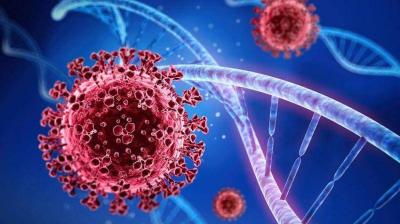Scientists are concerned about a "summer wave" of COVID-19 following the discovery of a new, highly contagious group of subvariants of "Omicron" in the United States, according to U.S. magazine "Newsweek." The new subgroup of the coronavirus, dubbed FLiRT, has quickly spread across the U.S., with one strain, KP.2, becoming the dominant strain in America as of May 11, according to the Centers for Disease Control and Prevention.
The new variant is characterized by mutations in the spike proteins, which are protrusions on the virus's surface that allow it to enter our cells. Adrian Esterman, an epidemiologist and professor of biostatistics at the University of South Australia, told Newsweek that the FLiRT subvariants are direct descendants of JN.1, the previous subvariant that dominated cases worldwide since late last year.
According to Esterman, the FLiRT subvariants are more contagious than JN.1 due to a small number of mutations in the spike protein, which helps the virus evade our immune system more effectively. Nevertheless, the current vaccines will still provide a certain level of immunity against these variants. Esterman indicated that "a new vaccine will be available soon, based on JN.1 or one of the FLiRT subvariants, which will provide much better protection."
Lawrence Young, a professor of virology and molecular oncology at the University of Warwick in the United Kingdom, stated that "although the currently available vaccines may not be a perfect match, they are still likely to provide a certain level of protection." Esterman confirmed that "our current understanding of the severity of the subvariants may change over time, but it seems we will see a pattern similar to what happened when JN.1 hit."
Esterman advised the elderly or those with chronic health issues to ensure they stay up to date with booster doses against COVID-19 and to begin wearing masks while using public transportation, shopping, and attending gatherings.




